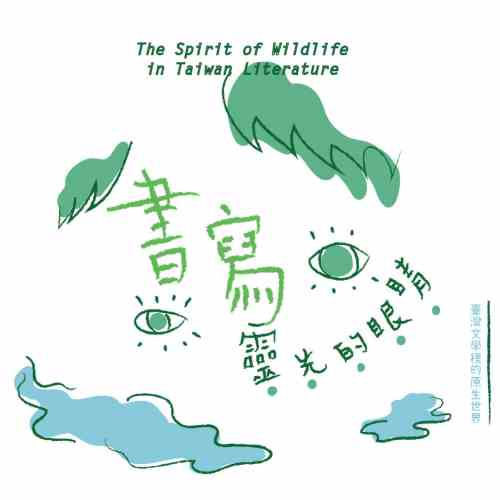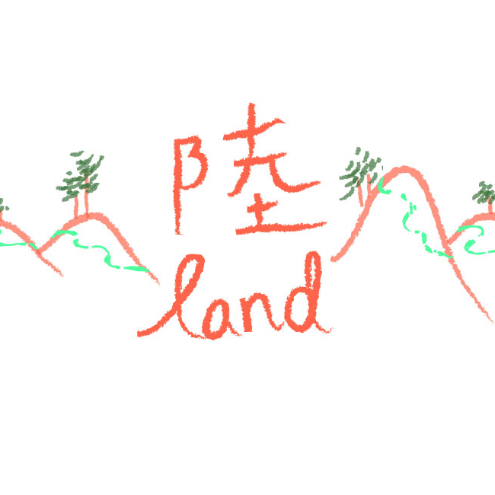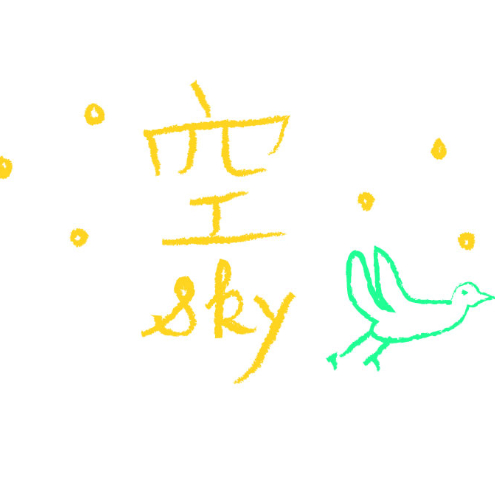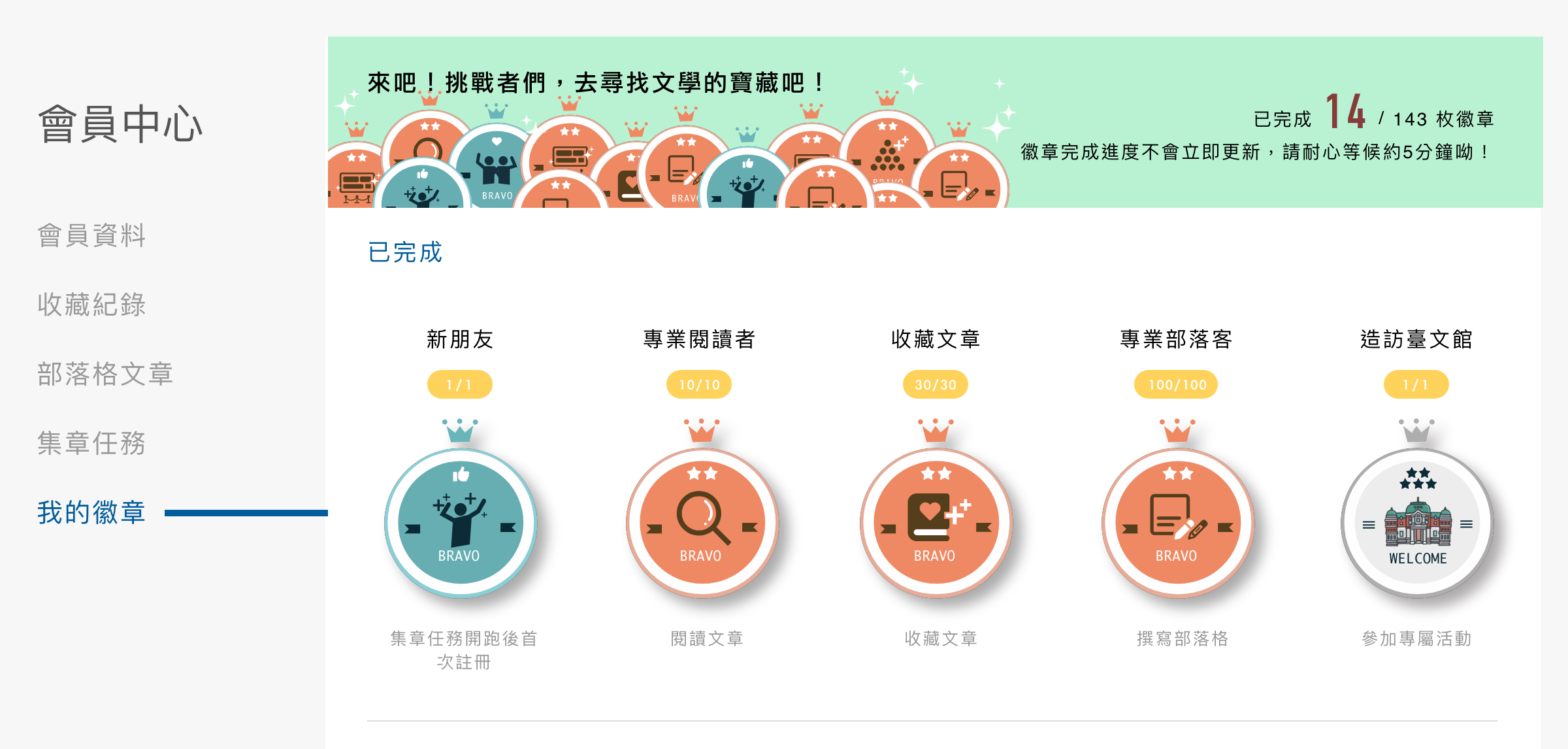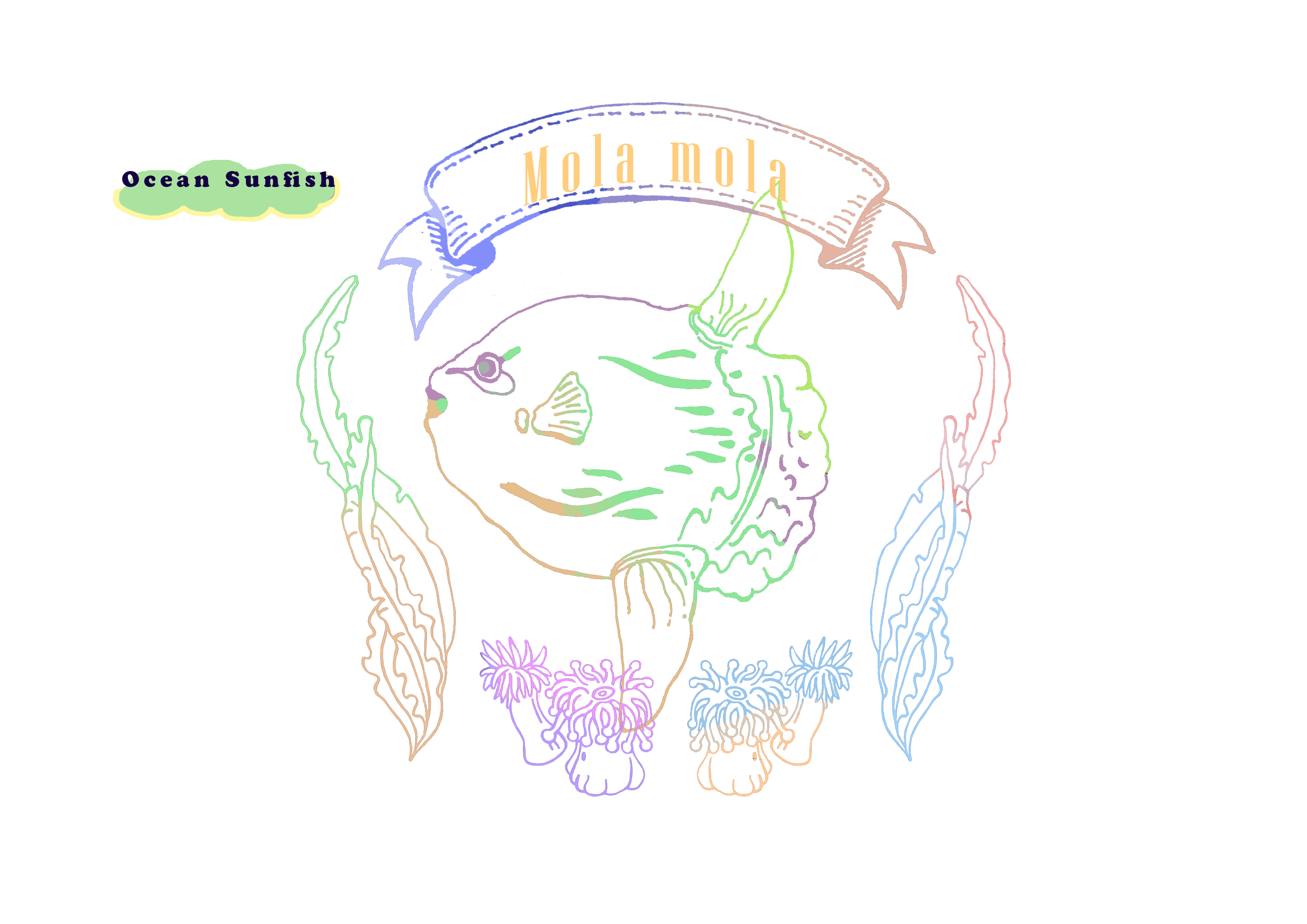
If you've never seen us before, you might be startled by our massive size. We're actually quite gentle, slow, and oblivious, so you can say that we're rather endearingly silly animals. To warm ourselves up, we often lay sideways to soak up the sun. We kind of look like a car flipped over when we do this, so we're also known as "car-flipped fish." We've also been nicknameed "rice cake fish," by fishermen because when we're caught, our round bodies look like chewy rice cakes.
I almost forgot, we're also called "Metal Fish" or tieyu because we like to eat jellyfish, which is pronounced "tei" in Taiwanese. Since it’s similar to the Mandarin Chinese word for "metal" or tie, that's how we ended up with this nickname. I have to say, humans can be pretty creative when it comes to giving nicknames.
.jpg)
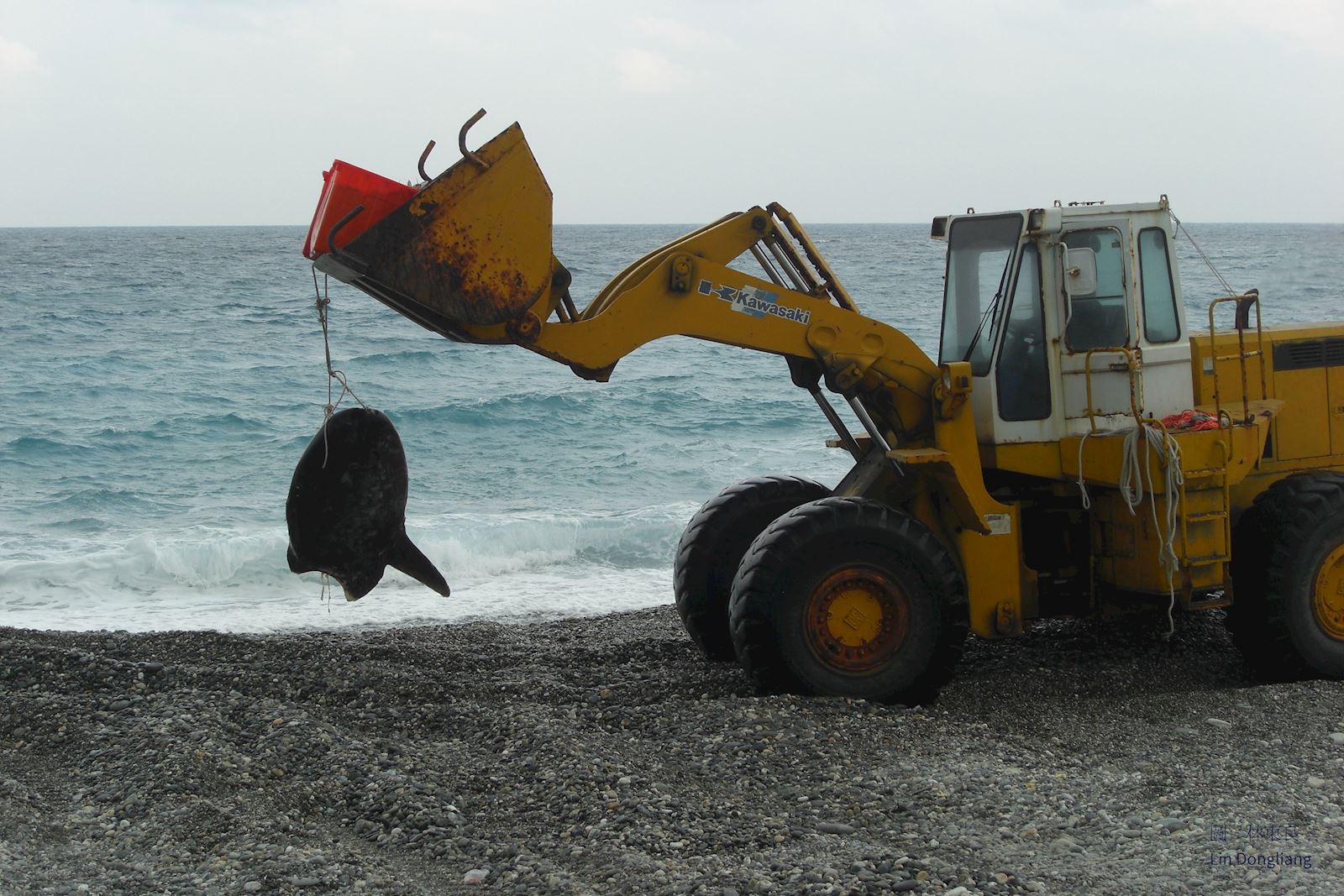
(Provided by Lin Dongliang)
I've never seen a fish as gentle or sincere and yet as tenacious as the tieyu. Kind-hearted and without a shred of resistance, the fish was ours to torture and bully. In a display of steel-like resolve, it clung to every last minute in its partner's embrace, and every second they watched over each other before their separation. Their deep love, as one protected and comforted the other, made their parting all the more unbearable... It was enough to drain every drop of our excitement over this marine battle, as it stained our dreams of reeling in a big one with blood and guilt.
I sat atop the cabin, drenched in sweat and blood. I thought of how I once told a friend onshore, "If I could be reborn again, I'd be willing to be a fish in the ocean." It dawned on me, however, that once I had killed these tieyu, my fate of becoming a fish was sealed. I turned my head towards Hai Yong-bo and saw his inhuman confidence. I daresay, he had been ready to be reborn as a fish long ago.
——Liao Hung Gee, "Tieyu," The Fishermen
Liao Hung Gee writes about the life of Hai Yong-bo, a fisherman in search of the biggest catch. He writes in vivid detail about Hai's hair-raising struggles to reel in an ocean sunfish. The ocean sunfish’s instinct to pair up serves as a foil to emphasize Hai Yong-bo's singularly unswerving determination in this story of crashing waves and rolling seas.
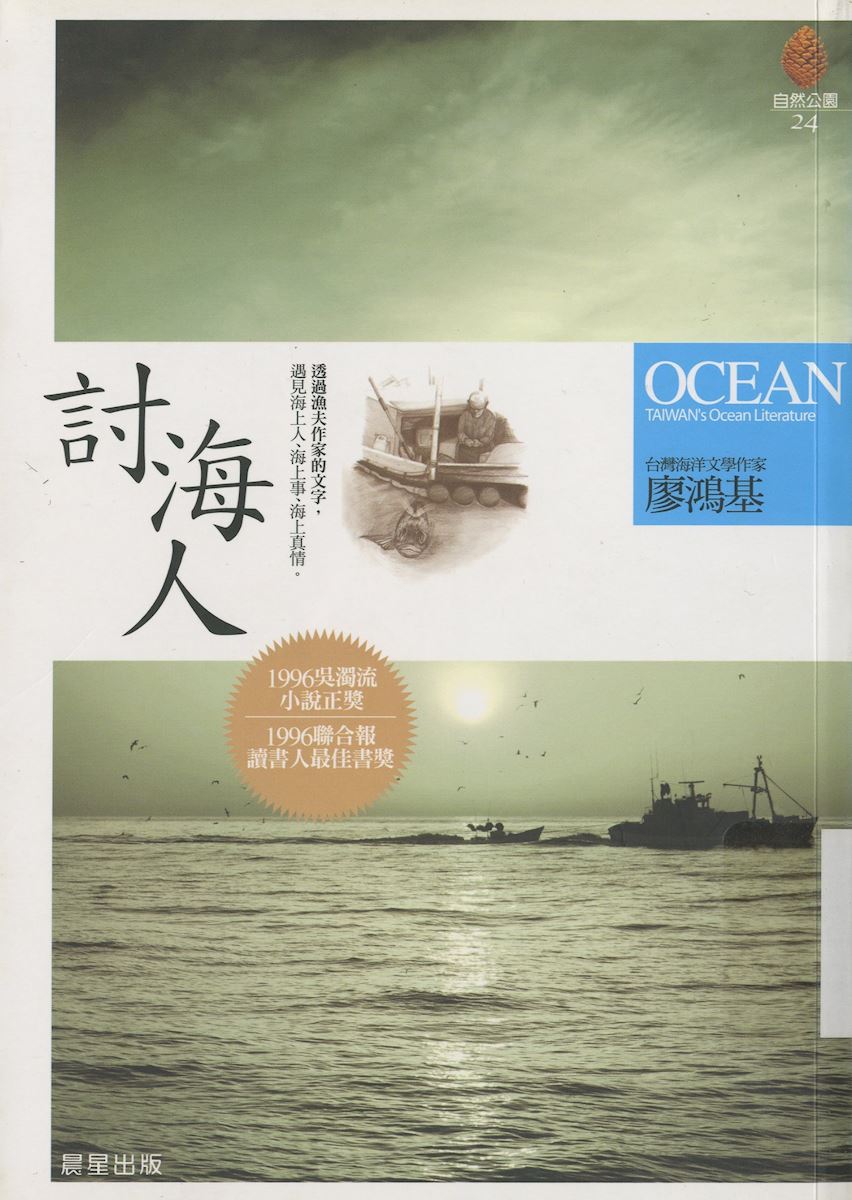
📖 Liao Hung Gee, The Fisherman, Morningstar Publishing Co.
Author Liao Hung Gee conveys in his debut novel the authenticity and wisdom of the ocean through the story's protagonist—a fisherman.
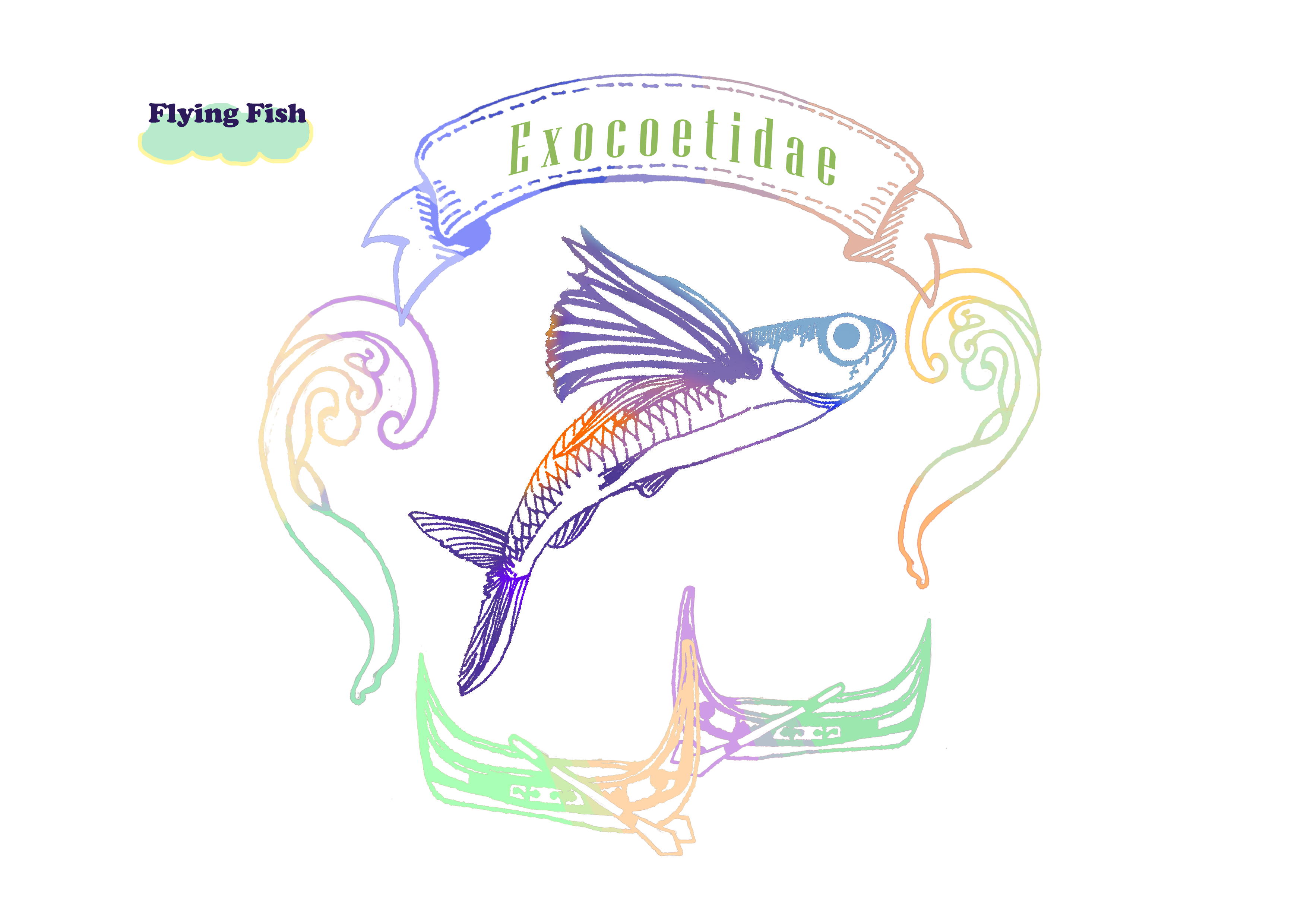
Even though we're called "flying fish," we don't actually fly. "Flying" simply manifests our instinct for survival. When startled or chased by predators, we flap our caudal fins and swim toward the surface as fast as we can. Immediately after propelling ourselves out of the water, we open our pectoral fins and glide through the air.
Every year from March to June we swim along the Kuroshio current to Orchid Island. There, the Yami people hold festivals to welcome us, as we are sacred to their tribe. Afterward, they fish for us in accordance with their customs and traditions. During flying fish season, there are many taboos as well that attest to their respect and reverence for nature.
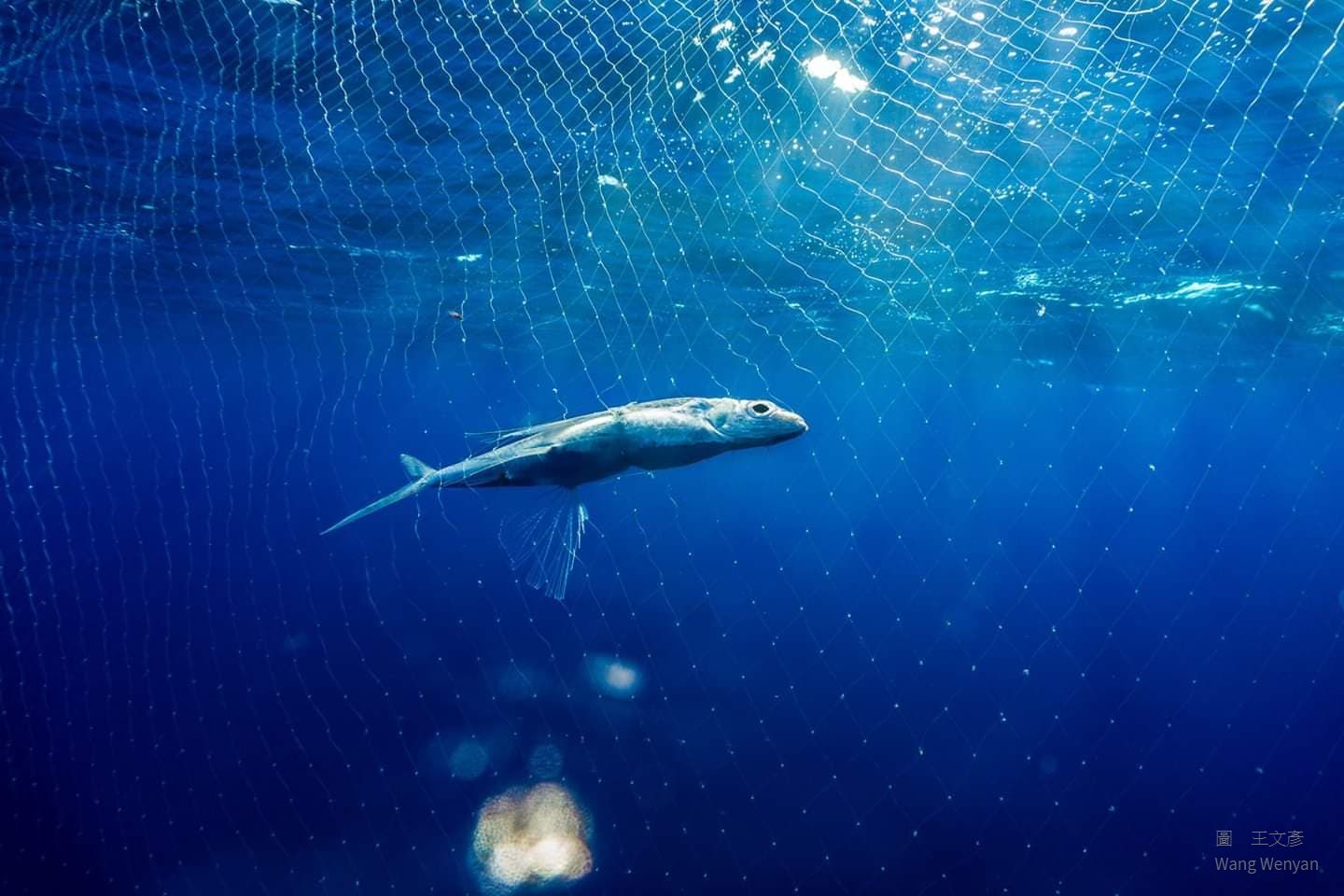
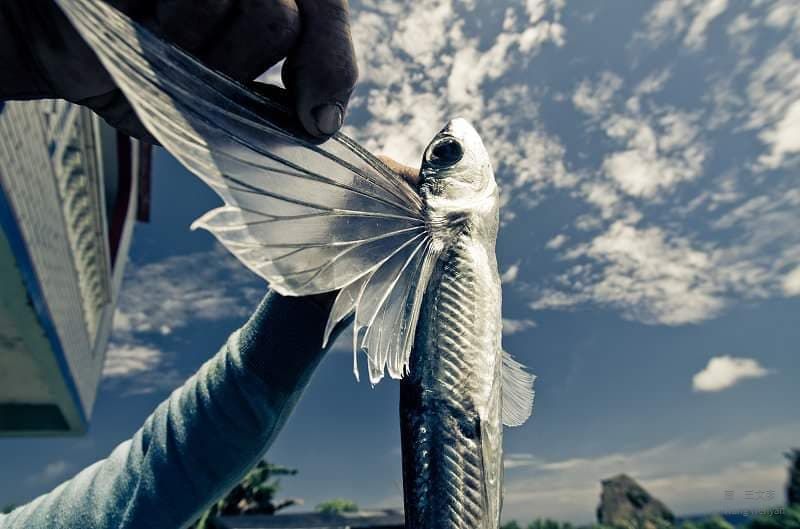
(Provided by Wang Wenyan)
After the fire went out, we were one with the darkness. The fisherman announced, "That will be all for today. We have caught three flying fish already, which is auspicious. Continuing will attract bad luck. Besides, this is our cousin Singanahe's first time fishing. To maintain our good luck, let's return." Everyone agreed in silence. Very few people understood the Yami's fishing culture, not even me. After the decision was made, the fisherman turned the boat back and the other crew members started paddling against the current.
I didn't know why they had chosen to stop fishing, so I whispered to Sen halfway back, "Why did we stop at only three flying fish?"
"Because three is good luck and this is our first fishing trip. It's your first time fishing as well. Of course we had to stop, moron!" he answered as he paddled.
"You're the moron," I shot back quietly.
——Siyapen·jipengaya, "Three Flying Fish," Three Flying Fish
In "Three Flying Fish," the author writes about his fishing experience in a childlike and colloquial manner. He also depicts the sacred flying fish culture of the Yami people and expresses his sorrow for their slowly disappearing traditions. According to the author, everything written in this book authentically represents how the Yami people think and talk and portrays the uniqueness of the Yami's language.
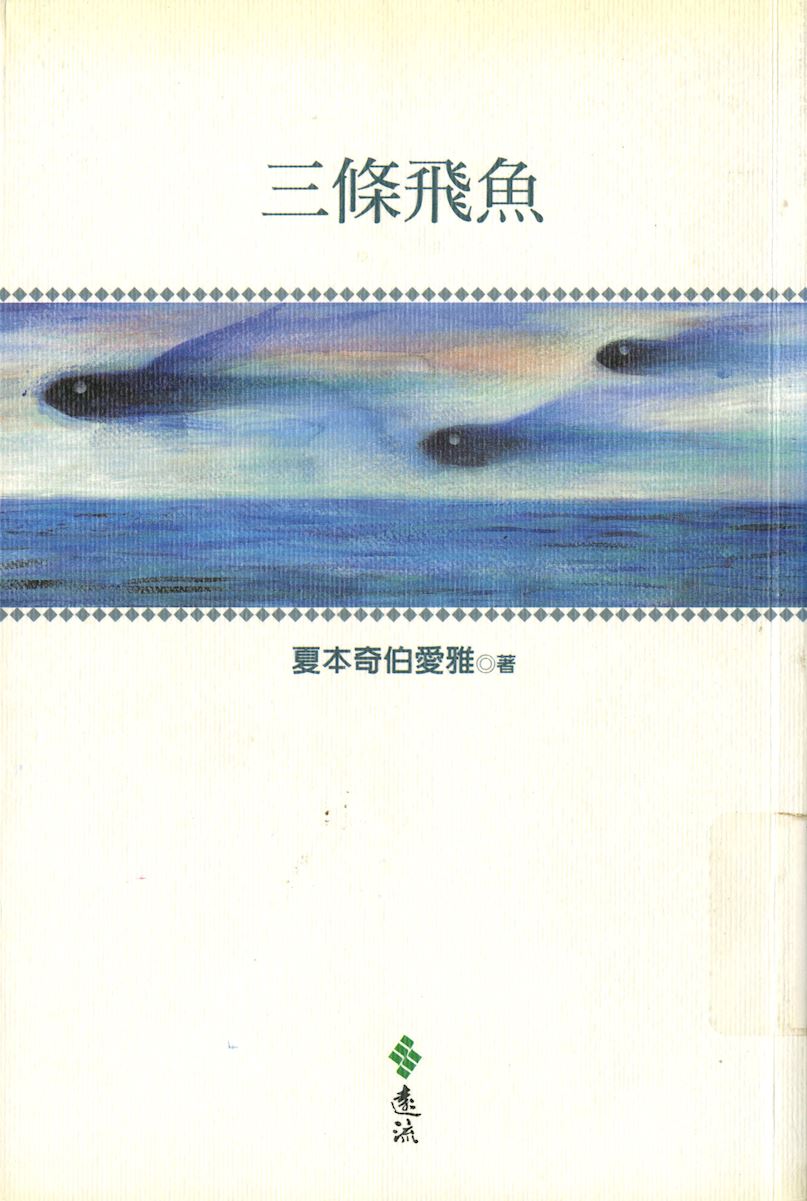
📖 Siyapen jipengaya, Three Flying Fish, Yuan-Liou Publishing Co. Ltd
Siyapen jipengaya, a member of the Tao (Yami) tribe, is an amateur author. The name “Singanahe” used in the book is the author's childhood name.
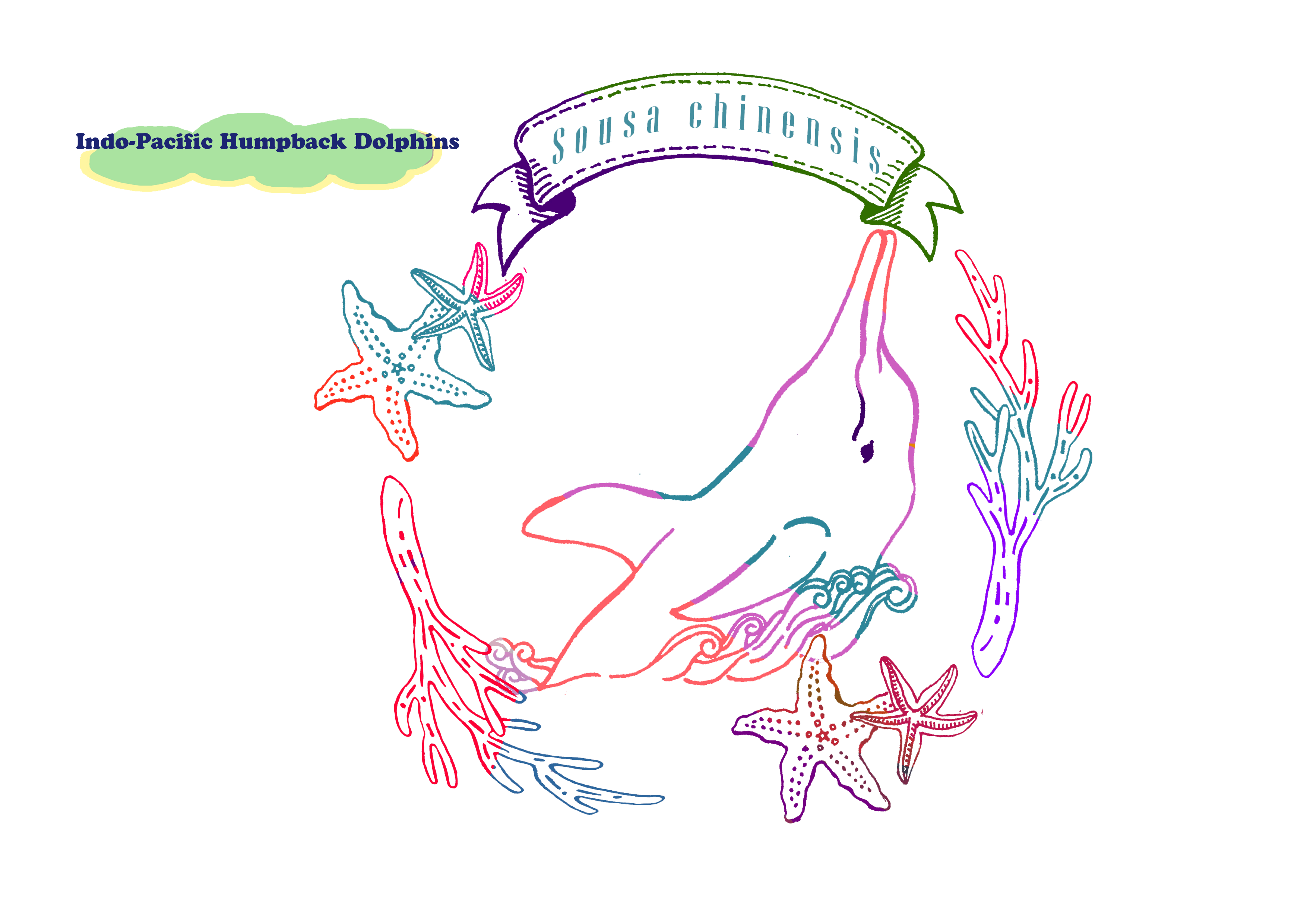
People sometimes call us "Matzu fish" because they often see us after the 15th of the third lunar month each year, when the weather at sea becomes more stable. Coincidentally, the folk-goddess Matzu's birthday is on the 23rd of that month. People have come to believe that we return to Taiwan each year at this time to join in on the celebration.
We live in shallow coastal waters and are susceptible to human disturbances. We got our five minutes of fame when a politician once mentioned that Indo-Pacific humpback dolphins are skilled at taking sharp turns. However, we have to dart around so adroitly because the coastal construction work of you humans have had a devastating impact on our homes.
According to a monitoring report, fewer than 50 Indo-Pacific humpback dolphins were spotted at sea in 2018. How devastating!
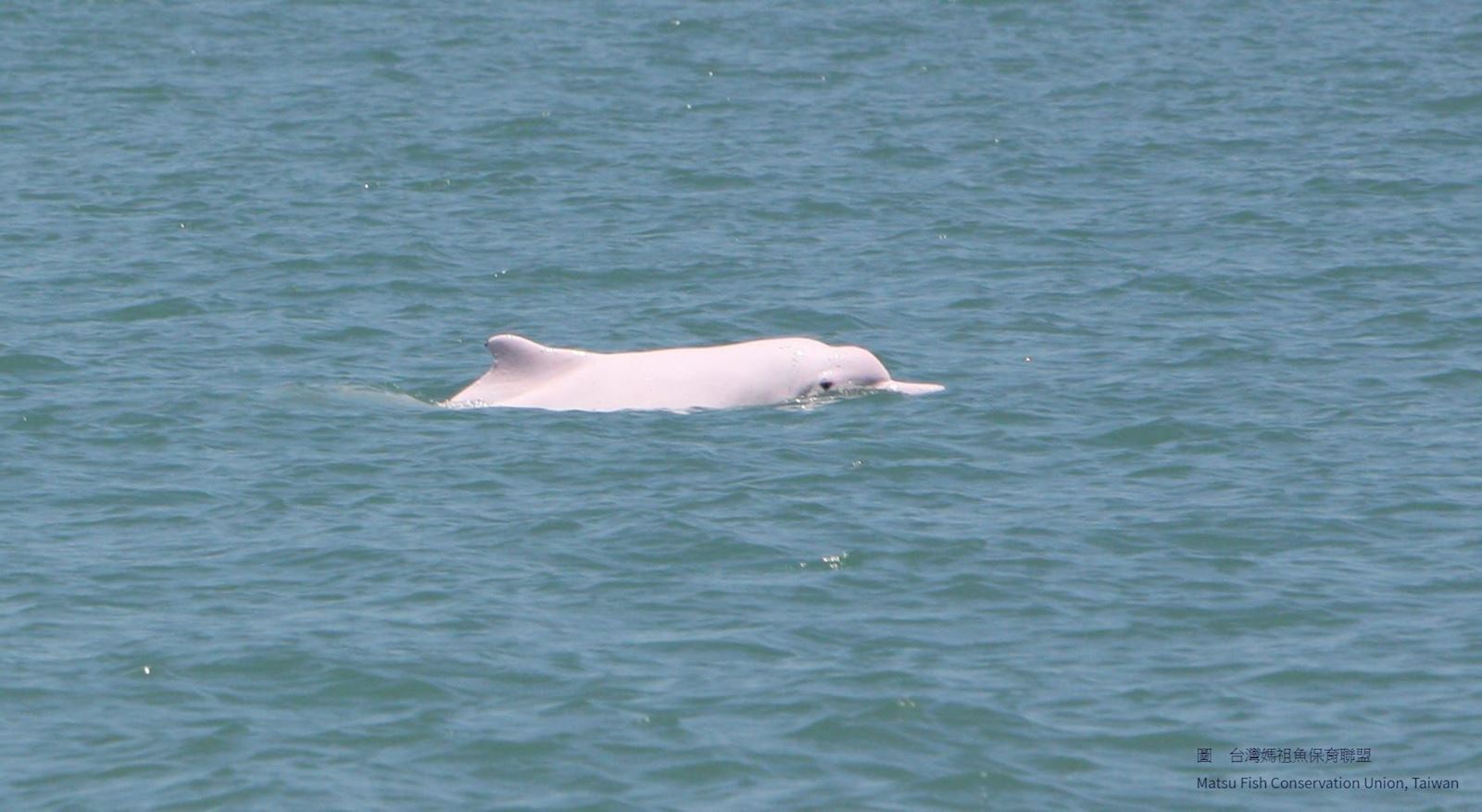
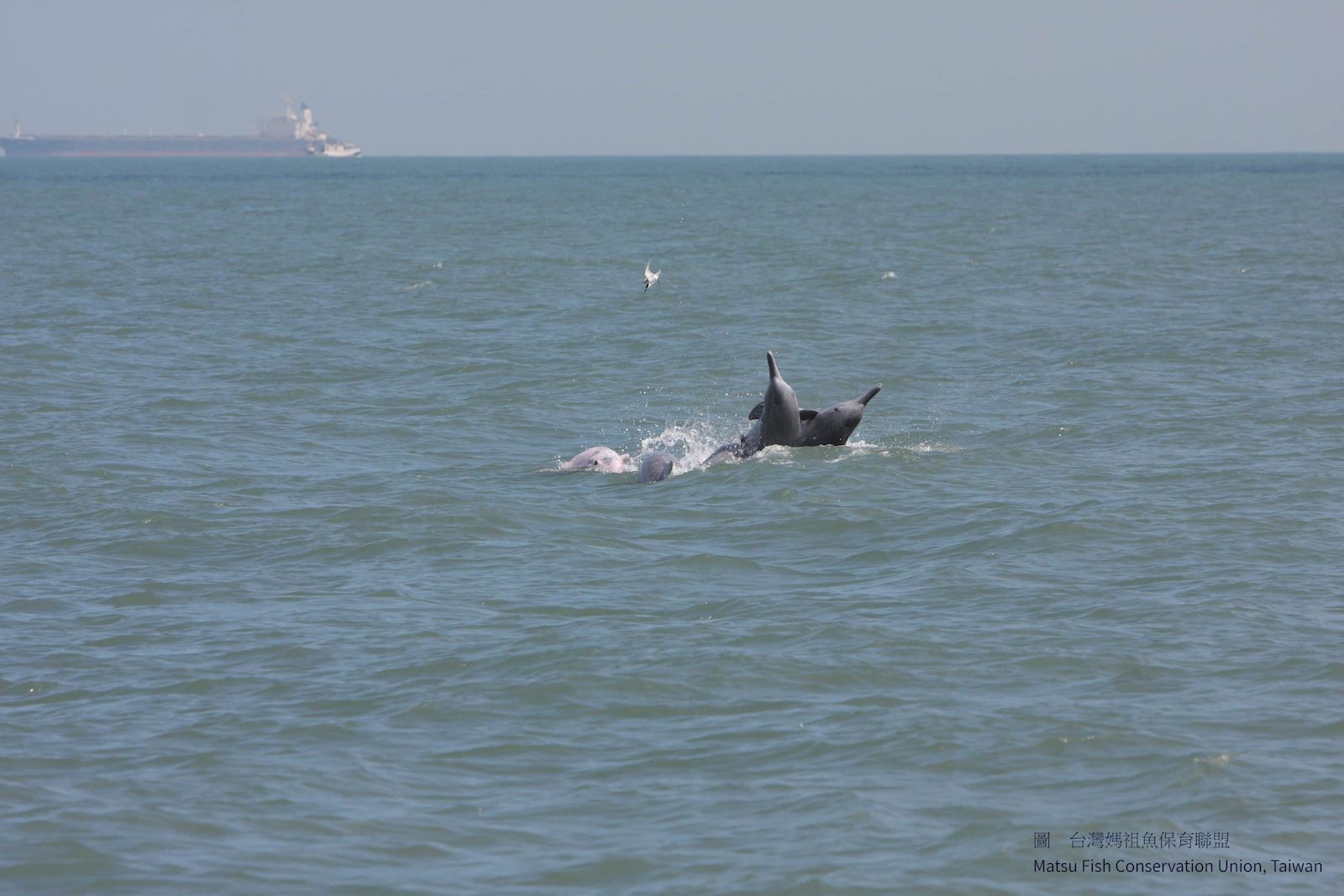
(Provided by Taiwan Matsu Fish Conservation Union)
This was a safe haven for rivers and oceans,
where the intimacy they'd longed for could be developed.
Fiddler crabs, mudskippers, Eurasian curlew, and black-winged stilts
performed with exuberance on this wetland stage.
This was where hungry little egrets came home,
where humpback dolphins slipped jauntily past,
and where generations of farmers worked alongside the tides,
enjoying the wind's caress!
As the tides rose and fell,
memories of the sand faded into ripples of transient bliss.
Here, space is infinite and life is diminutive.
Will future sons and daughters of our land
be able to find this sparkle of joy
for what is infinitely small?
——Wu Sheng, “All I Could Do Was Write Poetry For You,” Wetlands, the Petrochemical Industry, and Images of Our Island
(This book, edited by Wu Ming-yi and Wu Sheng, is a compilation of poetry, scientific papers, and news stories related to the controversial establishment of the Kuokuang Petrochemical factory. Its aim was to reveal to readers the workings and environmental impacts of Taiwan's petrochemical industry and propose a more sustainable vision for our collective future.)
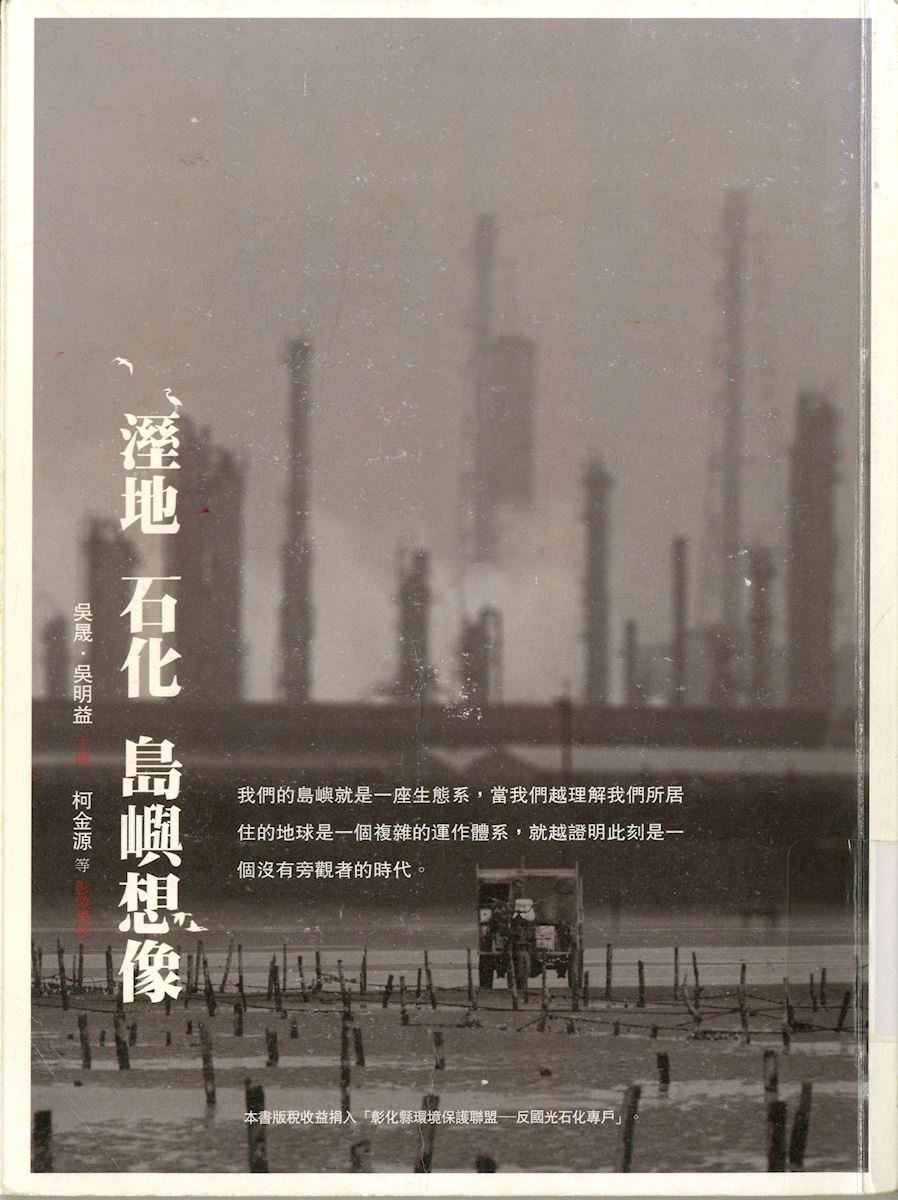
📖 Wetlands, the Petrochemical Industry, and Images of Our Island, Edited by Wu Sheng and Wu Ming-yi, Route Culture Co. Ltd.
Published after the Anti-Kuokuang Petrochemical Movement, this book provides a comprehensive overview of Taiwan’s petrochemical industry, including its development, related studies on the industry's ecological and environmental impacts, and literary works.
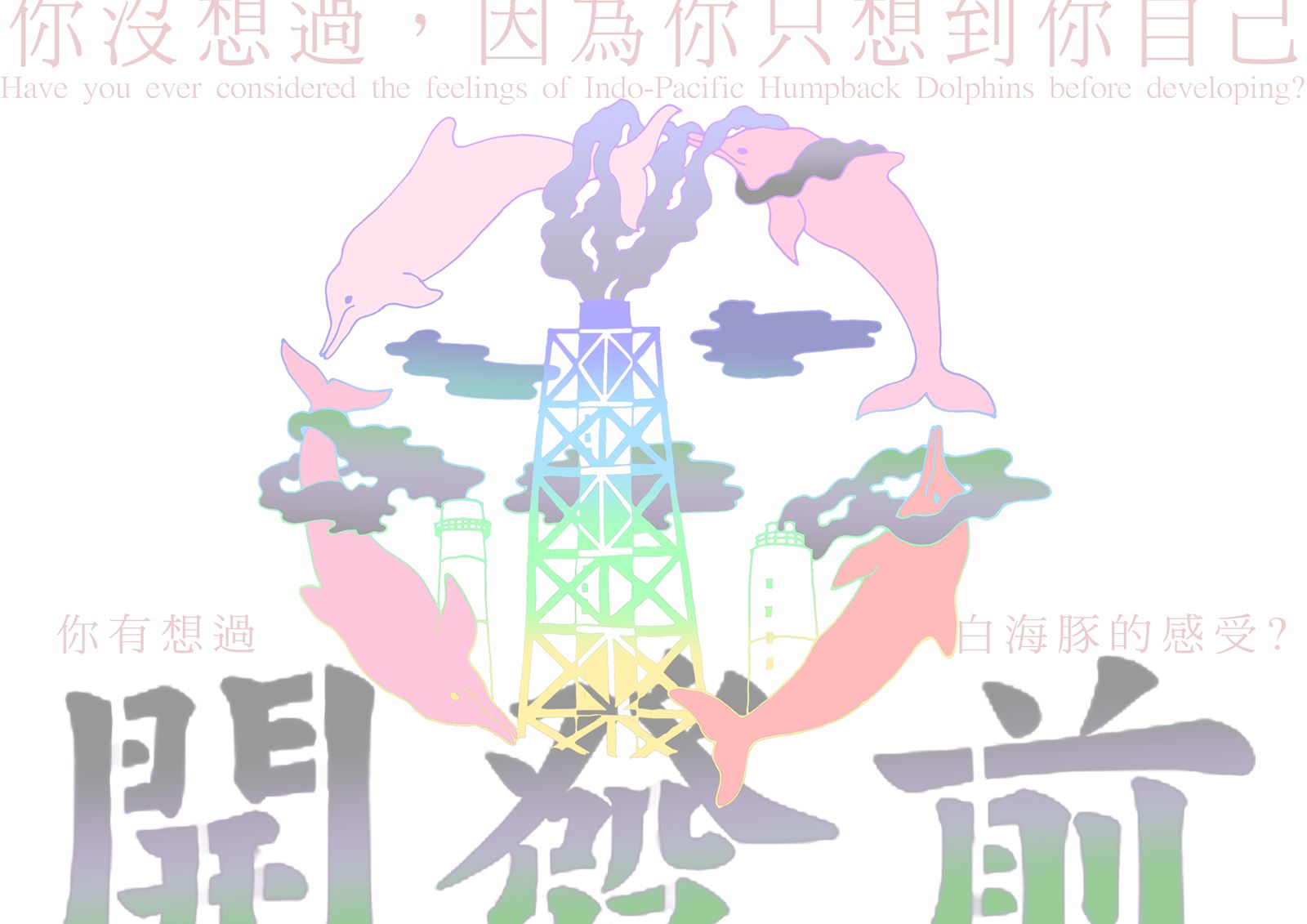
In the march of human progress and development, have we considered our impact on Indo-Pacific Humpback Dolphins?
